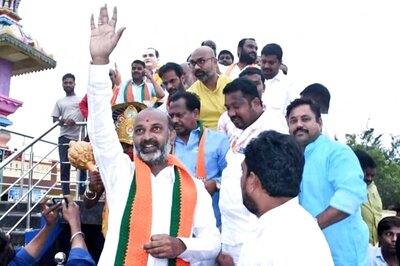
views
Beijing: China is planning to introduce a "baby bonus" scheme to provide financial incentives to encourage couples to have a second child, as surveys showed that many of them were reluctant to go beyond one child due to economic constraints, official media reported on Tuesday.
Wang Pei'an, vice-minister of the National Health and Family Planning Commission, said the potential move at a social welfare conference, state-run China Daily reported. Last year China, the world's most populous nation, relaxed its controversial and over four-decade-old 'one child' policy allowing all Chinese couples to have a second child to counter looming demographic crisis.
Nationwide, the change led to 17.8 million births in 2016, an increase of more than 1.3 million compared with the previous year and the biggest annual increase in 20 years. "That fully met the expectations, but barriers still exist and must be addressed," Wang said.
"To have a second child is the right of each family in China, but affordability has become a bottleneck that undermines the decision," he said.
To address that, Wang said, the government is considering introducing supporting measures including "birth rewards and subsidies" to encourage people to have another child. It is the first time that the top population authority has suggested such a move to boost the birthrate, Yuan Xin, a professor at Nankai University in Tianjin said.
"It's not easy, and a 'baby bonus' plan should be applied evenly nationwide as all government policies should be transparent and fair for all," he said, adding that the population authority alone cannot handle such a plan as it requires consensus and cooperation among all authorities.
In some low-fertility countries like Japan, baby incentives such as cash subsidies, prolonged maternity leave, tax breaks, and child and healthcare benefits have been introduced by the government to boost the population. "It's not the right time to introduce any financial incentive plans," he said.
Also, "the second-child policy is a choice by the top decision-makers facing a dilemma of the existing challenges and structural population problems like rapid ageing and a shrinking workforce", he said.



















Comments
0 comment